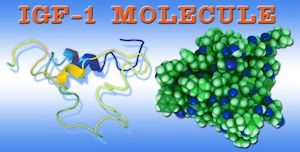Introduction to Hormonal Hair Loss
Hair loss is a common concern among American men, often attributed to genetic predispositions and aging. However, the role of endocrinology, specifically hormonal influences, cannot be understated. Hormones such as testosterone and its derivative, dihydrotestosterone (DHT), play pivotal roles in the regulation of hair growth and loss. Understanding these hormonal dynamics is crucial for managing and potentially mitigating hair loss.
The Role of Testosterone and DHT
Testosterone, the primary male sex hormone, is converted into DHT by the enzyme 5-alpha-reductase. DHT is significantly more potent than testosterone and has a profound effect on hair follicles. In genetically susceptible individuals, DHT can shrink hair follicles, leading to a condition known as androgenetic alopecia, or male pattern baldness. This process, known as miniaturization, results in progressively finer and shorter hair until the follicle eventually stops producing hair altogether.
Hormonal Imbalances and Hair Health
Beyond the well-known effects of DHT, other hormonal imbalances can influence hair health. Conditions such as hypothyroidism or hyperthyroidism can lead to hair thinning or loss. Similarly, elevated levels of prolactin, a hormone typically associated with lactation, can also contribute to hair loss in men. Identifying and addressing these hormonal imbalances through medical intervention can be a critical step in managing hair health.
Nutritional and Lifestyle Factors
While hormones play a significant role, nutritional and lifestyle factors also influence hair health. Diets deficient in essential nutrients such as zinc, iron, and vitamins A, D, and E can exacerbate hair loss. Additionally, chronic stress can lead to increased cortisol levels, which may disrupt normal hair growth cycles. American men are encouraged to adopt a balanced diet and manage stress effectively to support overall hair health.
Medical Interventions and Treatments
For those experiencing hair loss due to hormonal influences, several medical interventions are available. Medications such as finasteride and minoxidil are commonly prescribed. Finasteride works by inhibiting the conversion of testosterone to DHT, thereby reducing its impact on hair follicles. Minoxidil, on the other hand, is a topical treatment that can stimulate hair growth. In more severe cases, hormone replacement therapy or other endocrinological treatments may be necessary to address underlying hormonal imbalances.
The Psychological Impact of Hair Loss
Hair loss can have significant psychological effects on American men, impacting self-esteem and overall quality of life. It is important for healthcare providers to address these psychological aspects alongside physical treatments. Support groups and counseling can be beneficial in helping men cope with the emotional toll of hair loss.
Future Directions in Hair Loss Research
Ongoing research in endocrinology and hair health continues to uncover new insights into the mechanisms of hair loss and potential treatments. Advances in genetic testing may soon allow for more personalized approaches to managing hair loss, tailored to an individual's specific hormonal profile. Additionally, emerging therapies such as stem cell treatments and gene therapy hold promise for future interventions.
Conclusion
The interplay between hormones and hair health is complex and multifaceted. For American men, understanding the role of hormones such as testosterone and DHT, as well as other hormonal imbalances, is essential in addressing hair loss. By combining medical interventions with lifestyle adjustments and psychological support, men can take proactive steps towards maintaining their hair health. As research progresses, the future looks promising for new and innovative treatments that could revolutionize the management of hair loss.
Contact Us For A Fast And Professional Response

- Endocrinology and Sleep Disorders: Impact and Management in American Men [Last Updated On: February 20th, 2025] [Originally Added On: February 20th, 2025]
- Vitamin D's Crucial Role in Endocrine Health for American Males [Last Updated On: March 17th, 2025] [Originally Added On: March 17th, 2025]
- Lifestyle Impact on Endocrine Health in American Men: Diet, Exercise, Sleep, Stress [Last Updated On: March 18th, 2025] [Originally Added On: March 18th, 2025]
- Endocrine Health and Cancer Risk in American Men: A Comprehensive Analysis [Last Updated On: March 19th, 2025] [Originally Added On: March 19th, 2025]
- Managing PCOS in Transgender American Men: Endocrinological and Tailored Care Approaches [Last Updated On: March 19th, 2025] [Originally Added On: March 19th, 2025]
- Autoimmune Endocrine Disorders in American Males: Diagnosis, Treatment, and Management [Last Updated On: March 19th, 2025] [Originally Added On: March 19th, 2025]
- Hormonal Changes in Aging Men: Impacts and Management Strategies [Last Updated On: March 19th, 2025] [Originally Added On: March 19th, 2025]
- Hormonal Optimization for American Male Athletes: Enhancing Performance Naturally [Last Updated On: March 20th, 2025] [Originally Added On: March 20th, 2025]
- Endocrine Disruptors: Impact on American Male Health and Mitigation Strategies [Last Updated On: March 20th, 2025] [Originally Added On: March 20th, 2025]
- Endocrinology's Role in Weight Management for American Males: Hormones and Strategies [Last Updated On: March 21st, 2025] [Originally Added On: March 21st, 2025]
- Managing Type 2 Diabetes in American Men: An Endocrinological Approach [Last Updated On: March 21st, 2025] [Originally Added On: March 21st, 2025]
- Male Sexual Health and Endocrinology: Hormones, Disorders, and Treatment Insights [Last Updated On: March 22nd, 2025] [Originally Added On: March 22nd, 2025]
- Chronic Fatigue in American Males: Endocrinology's Role in Diagnosis and Management [Last Updated On: March 22nd, 2025] [Originally Added On: March 22nd, 2025]
- Dietary Impact on Endocrine Health in American Men: Hormones and Nutrition Strategies [Last Updated On: March 22nd, 2025] [Originally Added On: March 22nd, 2025]
- Smoking's Impact on Male Endocrine Health: Testosterone, Thyroid, and More [Last Updated On: March 23rd, 2025] [Originally Added On: March 23rd, 2025]
- Male Depression and Endocrinology: Hormonal Insights and Management Strategies [Last Updated On: March 23rd, 2025] [Originally Added On: March 23rd, 2025]
- Endocrine Health and Mental Well-being in American Males: Hormonal Balance and Lifestyle Impact [Last Updated On: March 23rd, 2025] [Originally Added On: March 23rd, 2025]
- Hormones and Joint Health in American Men: Impacts, Interventions, and Prevention [Last Updated On: March 23rd, 2025] [Originally Added On: March 23rd, 2025]
- Hormonal Influences on Dental Health in American Men: Strategies for Optimal Oral Care [Last Updated On: March 24th, 2025] [Originally Added On: March 24th, 2025]
- Managing Endocrine Disorders in American Men with Neurological Conditions: A Tailored Approach [Last Updated On: March 24th, 2025] [Originally Added On: March 24th, 2025]
- Alcohol's Impact on Endocrine Health in American Males: A Comprehensive Overview [Last Updated On: March 24th, 2025] [Originally Added On: March 24th, 2025]
- Endocrinology's Role in Male Infertility: Diagnosis, Treatment, and Lifestyle Impact [Last Updated On: March 24th, 2025] [Originally Added On: March 24th, 2025]
- Endocrine Health and Liver Function: Impacts on American Male Health [Last Updated On: March 24th, 2025] [Originally Added On: March 24th, 2025]
- Hormonal Influences on Immune Health in American Men: Testosterone, Cortisol, and More [Last Updated On: March 24th, 2025] [Originally Added On: March 24th, 2025]
- Hormones and Skin Health: A Guide for American Men [Last Updated On: March 24th, 2025] [Originally Added On: March 24th, 2025]
- Endocrinology's Impact on Muscle Health in American Males: Hormones and Optimization Strategies [Last Updated On: March 24th, 2025] [Originally Added On: March 24th, 2025]
- Endocrine System's Role in Digestive Health of American Males: Hormones and Disorders [Last Updated On: March 25th, 2025] [Originally Added On: March 25th, 2025]
- Endocrine Health and Hearing Loss in American Males: Insights and Prevention [Last Updated On: March 25th, 2025] [Originally Added On: March 25th, 2025]
- Sleep's Impact on Endocrine Health in American Males: Hormones and Well-being [Last Updated On: March 25th, 2025] [Originally Added On: March 25th, 2025]
- Endocrine Disorders and Heart Disease: Management Strategies for American Men [Last Updated On: March 25th, 2025] [Originally Added On: March 25th, 2025]
- Nutrition's Impact on Endocrine Health in American Males: Dietary Choices and Hormone Balance [Last Updated On: March 25th, 2025] [Originally Added On: March 25th, 2025]
- Gout in American Males: Endocrinological Insights and Management Strategies [Last Updated On: March 26th, 2025] [Originally Added On: March 26th, 2025]
- Exercise Benefits on Endocrine Health in American Males: Hormonal Impacts Explored [Last Updated On: March 26th, 2025] [Originally Added On: March 26th, 2025]
- Endocrinology's Impact on Kidney Health: A Guide for American Men [Last Updated On: March 26th, 2025] [Originally Added On: March 26th, 2025]
- Endocrinology's Role in Treating Male Eating Disorders in the USA [Last Updated On: March 26th, 2025] [Originally Added On: March 26th, 2025]
- Endocrine Disorders and Autoimmune Diseases in American Men: Management and Impact [Last Updated On: March 26th, 2025] [Originally Added On: March 26th, 2025]
- Endocrine Health's Role in Prostate Cancer Among American Men: A Comprehensive Overview [Last Updated On: March 26th, 2025] [Originally Added On: March 26th, 2025]
- Chronic Stress Impact on Endocrine Health in American Males: Hormonal Pathways and Management [Last Updated On: March 26th, 2025] [Originally Added On: March 26th, 2025]
- Endocrine Health and Vision: Critical Insights for American Males [Last Updated On: March 26th, 2025] [Originally Added On: March 26th, 2025]
- Hormonal Imbalances and Foot Health in American Men: Impacts and Management Strategies [Last Updated On: March 27th, 2025] [Originally Added On: March 27th, 2025]
- Endocrinology's Role in Managing Male Insomnia in the USA [Last Updated On: March 27th, 2025] [Originally Added On: March 27th, 2025]
- Endocrine-Gastrointestinal Interplay: Management Strategies for American Men [Last Updated On: March 27th, 2025] [Originally Added On: March 27th, 2025]
- Exploring Endocrinology's Role in Treating Male Anxiety in the USA [Last Updated On: March 28th, 2025] [Originally Added On: March 28th, 2025]
- Endocrine Disorders and Skin Health in American Men: Diagnosis, Treatment, and Management [Last Updated On: March 28th, 2025] [Originally Added On: March 28th, 2025]
- Endocrine Health's Impact on Respiratory Function in American Males [Last Updated On: March 28th, 2025] [Originally Added On: March 28th, 2025]
- Endocrine Health and Nail Conditions in American Males: A Diagnostic Insight [Last Updated On: March 28th, 2025] [Originally Added On: March 28th, 2025]
- Exploring Endocrinology's Role in Managing ADHD in American Males [Last Updated On: March 28th, 2025] [Originally Added On: March 28th, 2025]
- Caffeine's Impact on Endocrine Function in American Males: Risks and Recommendations [Last Updated On: March 28th, 2025] [Originally Added On: March 28th, 2025]
- Endocrine Disorders in Men: Impact on Eye Health and Management Strategies [Last Updated On: March 30th, 2025] [Originally Added On: March 30th, 2025]
- Endocrinology's Role in Treating PTSD Among American Males: Hormonal Insights and Interventions [Last Updated On: March 30th, 2025] [Originally Added On: March 30th, 2025]

















